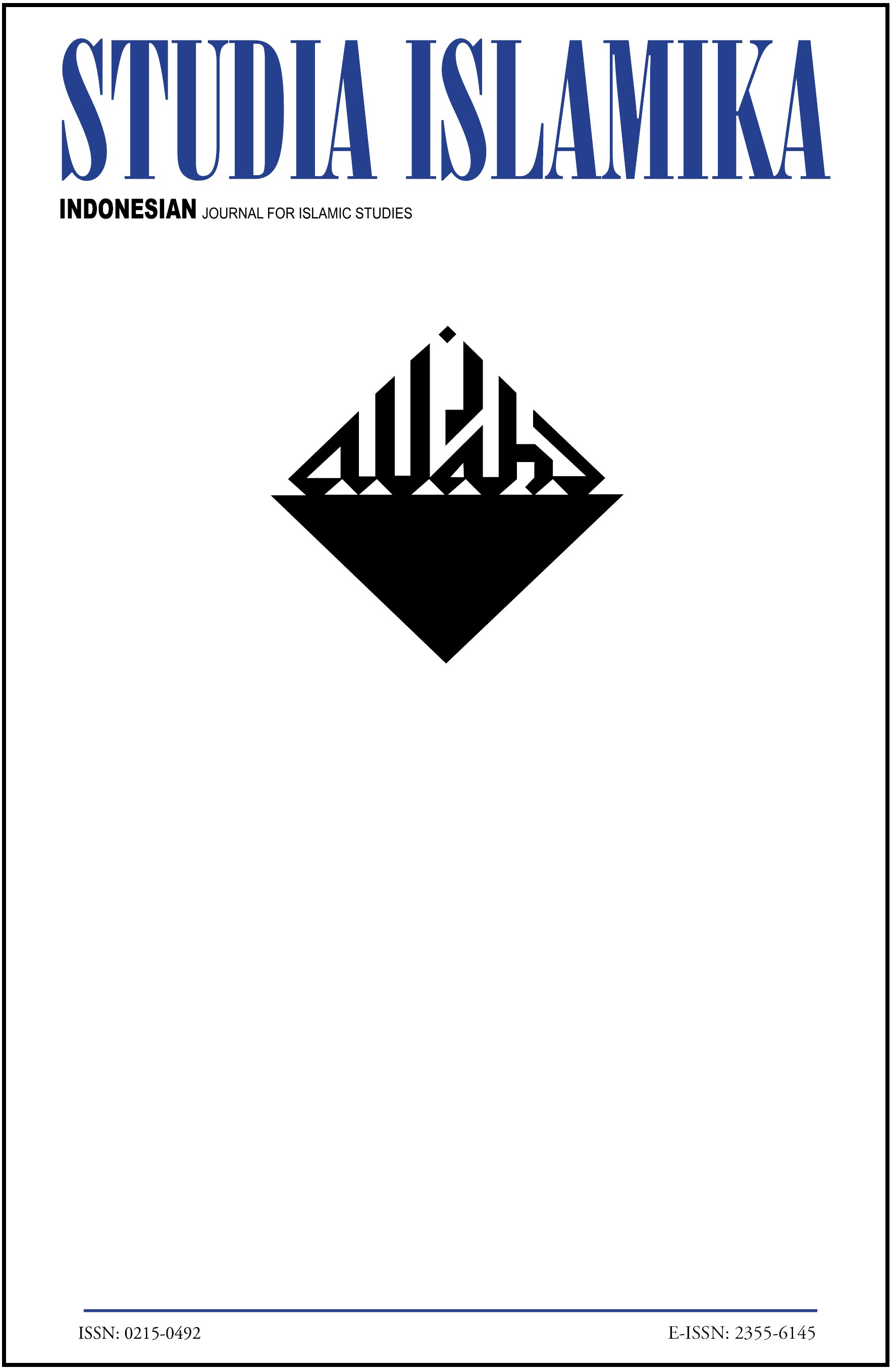Abstract
Debates regarding the compatibility of Islam and democracy have thrived, with a focus on political moderation and post-Islamism to explain changes among Islamist groups. However, there’s been little exploration into the historical evolution of their ideologies and political preferences in religious politics. This study examines the role of ideas and politics within Muslim organizations, political parties, and the state in Indonesia. It emphasizes the mechanisms behind both ideology and political motivations, showing how political Islam adopted pragmatic behaviour before entering democratic politics. The interaction between the ideological renewals of Muslim thinkers in the 1970s and changes in the state’s institutional arrangement under the New Order drove Islamic transformation. Political institutions shape Islamic political ideas and their manifestation, influencing cultural identity, political mobilization, and negotiation of group claims. Muslim leadership acts as agents in defining religious interests based on institutional markers.References
Ali, Fachry, and Bahtiar Effendy. 1986. Merambah Jalan Baru Islam: Rekonstruksi Pemikiran Islam Indonesia Masa Orde Baru. Bandung: Penerbit Mizan.
Anwar, M. Syafi’i. 1995. Pemikiran Dan Aksi Islam Indonesia: Sebuah Kajian Politik Tentang Cendekiawan Muslim Orde Baru. Cet. 1. Jakarta: Paramadina.
Ayoob, Mohammed. 2007. The Many Faces of Political Islam: Religion and Politics in the Muslim World. Michigan: University of Michigan Press.
Barton, Greg. 1995. “Neo-Modernism: A Vital Synthesis of Traditionalist and Modernist Islamic Thought in Indonesia.” Studia Islamika 2(3): 1–75. doi:10.15408/sdi.v2i3.827.
Barton, Greg. 1997. “Indonesia’s Nurcholis Madjid and Abdurrahman Wahid as Intellectual Ulama: The Meeting of Islamic Traditionalism and Modernism in Neo-Modernist Thought.” Islam and Christian-Muslim Relations 8(3): 323–50.
Barton, Greg, and Greg Feally, eds. 1996. Nahdlatul Ulama, Traditional Islam, and Modernity in Indonesia. Melbourne: Monash Asia Institute.
Boland, B. J. 1984. The Struggle of Islam in Modern Indonesia. The Hague: Martinus Nitjhoff.
van Bruinessen, Martin. 1996. “Islamic State or State Islam? Fifty Years of State-Islam Relations in Indonesia.” In Indonesien Am Ende Des 20. Jahrhunderts, ed. Ingrid Wessel. Hamburg: Abera-Verlag.
Buehler, Michael. 2009. “Islam and Democracy in Indonesia.” Insight Turkey 11(4): 51–63.
Burke, Edmund, and Ira M. Lapidus. 1988. Islam, Politics, and Social Movements. Berkeley: University of California Press.
Damanik, Ali Said. 2002. Fenomena Partai Keadilan: Transformasi 20 Tahun Gerakan Tarbiyah di Indonesia. Jakarta: Teraju.
Effendy, Bahtiar. 1995. “Islam and the State: The Transformation of Political Thought and Practice in Indonesia.” PhD. Dissertation. Ohio State University.
Haris, Syamsuddin. 2004. “Politicization of Religion and the Failure of Islamic Parties in the 1999 General Election.” In Elections in Indonesia, eds. Hans Antlov and Sven Cederroth. London and New York: Routledge, 61–76.
Hassan, Mohammad Kamal. 1980. Muslim Intellectual Responses to “New Order” Modernization in Indonesia. Kuala Lumpur: Dewan Bahasa dan Pustaka.
Hefner, Robert W. 1993. “Islam, State, and Civil Society: ICMI and the Struggle for the Indonesian Middle Class.” Indonesia (56): 1–35.
Hefner, Robert W. 2000. Civil Islam: Muslims and Democratization in Indonesia. Princeton, NJ: Princeton University Press.
Hooker, M. B. 2003. Indonesian Islam: Social Change Through Contemporary Fatāwā. Honolulu: University of Hawaii Press.
Husin, Asna. 1998. “Philosophical and Sociological Aspects of Da’wa.” Ph.D. Thesis. University of Columbia.
Ichwan, Moch. Nur. 2005. “‘Ulamā’, State and Politics: Majelis Ulama Indonesia After Suharto.” Islamic Law and Society 12(1): 45–72. doi:10.1163/1568519053123867.
Kull, Ann. 2005. Piety and Politics: Nurcholish Madjid and His Interpretation of Islam in Modern Indonesia. Sweden: Lund University Studies is History and Religions.
Lee, Jeff. 2004. “The Failure of Political Islam in Indonesia: A Historical Narrative.” Stanford Journal of East Asian Affairs 4(1). http://web.stanford.edu/group/sjeaa/journal41/seasia1.pdf (January 27, 2016).
Liddle, R. William. 1996. “The Islamic Turn in Indonesia: A Political Explanation.” The Journal of Asian Studies 55(3): 613–34. doi:10.2307/2646448.
Madjid, Nurcholish. 1970. Pembaharuan Pemikiran Islam. Jakarta: Islamic Research Centre.
Madjid, Nurcholish. 1994. Islam Kerakyatan Dan Keindonesiaan. Bandung: Mizan.
Madjid, Nurcholish. 2004. “Personal Interview.”
Mallarangeng, Rizal. 2000. “Liberalizing New Order Indonesia: Ideas, Epistemic Communities and Economic Policy Change, 1986-1992.” Ph.D. Thesis. Columbia University.
Mudzhar, M. Atho. 1993. Fatwas of the Council of Indonesian Ulama: A Study of Islamic Legal Thought in Indonesia, 1975-1988. Jakarta: INIS.
Munhanif, Ali. 2012. “‘Ties That Would Divide’: Explaining the NU’s Exit from Masyumi in 1952.” Studia Islamika 19(2). doi:10.15408/sdi.v19i2.363.
Nieuwenhuijze, Christoffel Anthonie Olivier. 1958. Aspects of Islam in Post-Colonial Indonesia. The Hague and Bandung: W. van Hoeve.
Nurwahid, Hidayat. 2020. “Personal Interview.”
Porter, Donald J. 2002. Managing Politics and Islam in Indonesia. London: Routledge Curzon.
Ramage, Douglas E. 1995. Politics in Indonesia: Democracy, Islam and the Ideology of Tolerance. New York and London: Routledge. http://search.ebscohost.com/login.aspx?direct=true&scope=site&db=nlebk&db=nlabk&AN=76332 (January 9, 2017).
Samson, Allan A. 1968. “Islam in Indonesian Politics.” Asian Survey 8(12): 1001–17. doi:10.2307/2642153.
Samson, Allan A. 1971. “Islam and Politics in Indonesia.” University of California.
Sembiring, Tifatul. 2020. “Personal Interview.”
Suryadinata, Leo. 2002. Elections and Politics in Indonesia. Singapore: ISEAS Publishing.
Suryadinata, Leo, Evi Nurvidya Arifin, and Aris Ananta. 2003. “Indonesia’s Population: Ethnicity and Religion in a Changing Political Landscape.” Singapore: ISEAS.
Tan, Paige Johnson. 2006. “Indonesia Seven Years after Soeharto: Party System Institutionalization in a New Democracy.” Contemporary Southeast Asia 28(1): 88–114.
Uhlin, Anders. 1997. Indonesia and the Third Wave of Democratization. Richmond, Surrey: Curzon Press.
Authors who publish with this journal agree to the following terms:
- Authors retain copyright and grant the journal right of first publication with the work simultaneously licensed under a Creative Commons Attribution License that allows others to share the work with an acknowledgement of the work's authorship and initial publication in this journal.
- Authors are able to enter into separate, additional contractual arrangements for the non-exclusive distribution of the journal's published version of the work (e.g., post it to an institutional repository or publish it in a book), with an acknowledgement of its initial publication in this journal.
- Authors are permitted and encouraged to post their work online (e.g., in institutional repositories or on their website) prior to and during the submission process, as it can lead to productive exchanges, as well as earlier and greater citation of published work.

